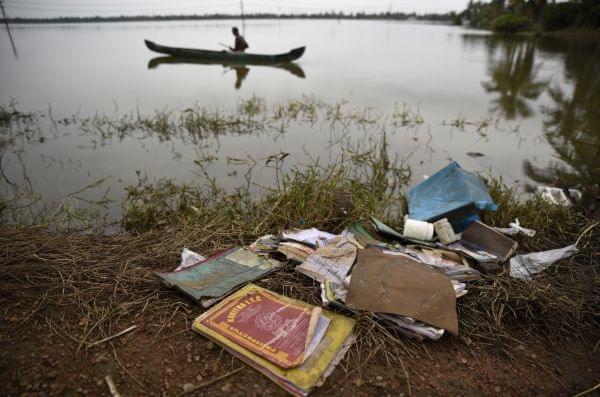Illinois Residents Respond To Kerala Flood; The Life Of Albert R. Lee; Donating Organs As A Teenager

(R S Iyer/AP)
On The 21st: The legacy of Albert Lee - an African-American man who helped some of the U of I’s first black students succeed - at a time when they were often denied access to resources. We also revisit our conversation about a state law which prompted some 16 and 17-year olds to add their names to the organ donor list. But first, residents of the south Indian state of Kerala are trying to recover from the worst flood in a century. We talk with members of Illinois’ large Indian communities who are raising money to help.
People in the southern Indian state of Kerala are recovering from the worst flood in more than a century. Almost 400 people have been killed in this natural disaster two weeks ago, and more than 1 million people have been displaced from their homes. Authorities in Kerala estimate that the damage is more than two and a half billion dollars.
Since the flood, members of Illinois’s Indian community has been raising money to help with relief efforts- two Chicago area Keralites decided to do something about it. Arun Simon of Arlington Heights set up a Facebook campaign. The goal was to raise $100,000.
But within days - the campaign surpassed all expectations. To date - more than 1.5 million dollar have been raised. Arun has gone to India - at the request of the government of Kerala - for his fundraising efforts.
Another Keralite - Addison IL resident Abraham Matthew - is the communications manager for the campaign. He joined us on the line. We were also joined by Congressman Raja Krishnamoorthi, who represents Illinois’s 8th District. That’s many of the northern suburbs of Chicago.
Arun Nella of Arlington Heights has been collecting funds for the people of Kerala. Here's how you can donate:https://t.co/a1ueoEPh5l#KeralaFloods #KeralaFloodRescue #KeralaDonationChallenge
— The 21st (@21stShow) August 28, 2018
Plus-
The first African-American student at the University of Illinois enrolled in 1887. That’s long before many other public universities in the US- especially in southern states.
But that doesn’t mean life was easy, both back then, and in the decades after. Black students weren’t allowed to live in dorms and were often denied basic services in the towns of Champaign and Urbana.
For many of those students, an African-American man named Albert Lee was a lifeline. He started working at the University of Illinois in 1895. And for the next fifty years, he worked at the university, including as chief clerk of the U of I’s president office. During that time he became known as the unofficial dean of African-American students, for the work he did to advocate for black students and connect them with resources they didn’t have access to.
Later this week, members of his family will gather at U of I to commemorate his life. And we were joined by one of Albert R. Lee’s family members. David Lee is his great-grandson. He also works as a public health professional in Los Angeles. We were also joined by Vanessa Rouillon. She’s working on biography and a documentary about Mr. Lee’s life. She’s also an assistant professor of writing and rhetoric at James Madison University in Virginia.
African-American students attended the University of Illinois in the early 20th century - but they often couldn't find housing.
— The 21st (@21stShow) August 28, 2018
Albert R. Lee, who worked at the U of I's president's office for 52 years, played an essential role in helping students find a place to live.
And -
Are you an organ donor? More than 60% of people living in the state are, but until just a few months ago, you could only sign up if you were 18 and older. But under a new law that took effect this year, teens 16 and 17-years-old can choose to donate their organs through Illinois’ database.
Illinois now joins the vast majority of other states in doing this - we had been one of three that hadn’t allowed teenagers to join the organ donor list. Now that it’s allowed, more than 16,000 teenagers have added their names to the list.
So how is this affecting people who are waiting for organ transplants? Kevin Cmunt is the President of the Gift of Hope Organ & Tissue Donor Network. He joined us from Itasca, a suburb northwest of Chicago. Jacob Lenzini also talked with us. He’s a 17-year old graduate from Maine South High School in Park Ridge, just Northwest of Chicago.
"These people can go out now and live their lives. You just sign up and save someone's life. It's the simplest thing. It's that easy."
— The 21st (@21stShow) August 28, 2018
- Organ donor, teen Jacob Lenzinihttps://t.co/CC1mlesobi @GiftofHope https://t.co/H2Gn7s2oWv

